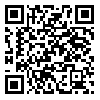BibTeX | RIS | EndNote | Medlars | ProCite | Reference Manager | RefWorks
Send citation to:
URL: http://etiadpajohi.ir/article-1-3289-en.html
Objective: The present study aimed to determine the effectiveness of Dialectical Behavior Therapy (DBT) on self-care and rejection sensitivity in adolescents with a substance-dependent parent. Method: This was a quasi-experimental study with a pre-test and post-test design with a control group. The statistical population included all adolescents aged 16 to 18 with a substance-dependent parent in Shahreza city in 2023. Using purposive sampling, 30 participants who met the inclusion criteria and scored sufficiently on the self-care and rejection sensitivity questionnaires were selected. These participants were then randomly assigned to either an experimental group or a control group, each with 15 members. The experimental group received 10 sessions of 90-minute DBT, with a frequency of one session per week. Both groups completed the self-care and rejection sensitivity questionnaires during the pre-test and post-test phases, and the data were analyzed using multivariate analysis of covariance. Results: There was a significant difference in self-care and rejection sensitivity between the experimental and control groups. Specifically, DBT increased self-care and decreased rejection sensitivity in people involved in the experimental group. The effect size was 50% for self-care and 42% for rejection sensitivity. Furthermore, all components of the study showed significant change, with the exception of the "decision-making" and "enjoyment of life" components. Conclusion: DBT is effective in improving self-care and reducing rejection sensitivity in adolescents. Mental health and addiction specialists can utilize this approach to address the challenges faced by adolescents with substance-dependent parents.
Received: 2025/03/24 | Accepted: 2025/05/31 | Published: 2025/10/6
| Rights and permissions | |
 |
This work is licensed under a Creative Commons Attribution-NonCommercial 4.0 International License. |






